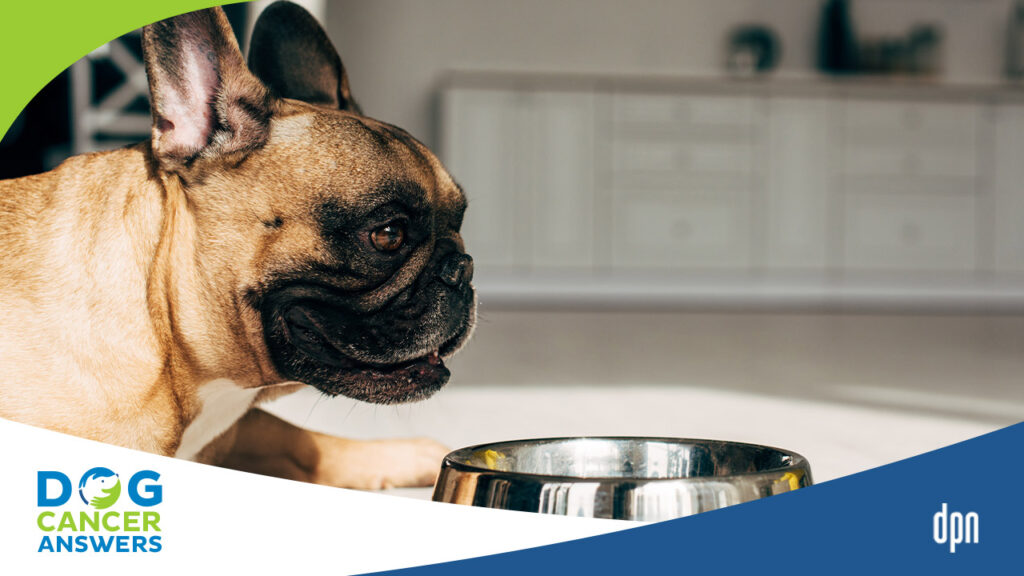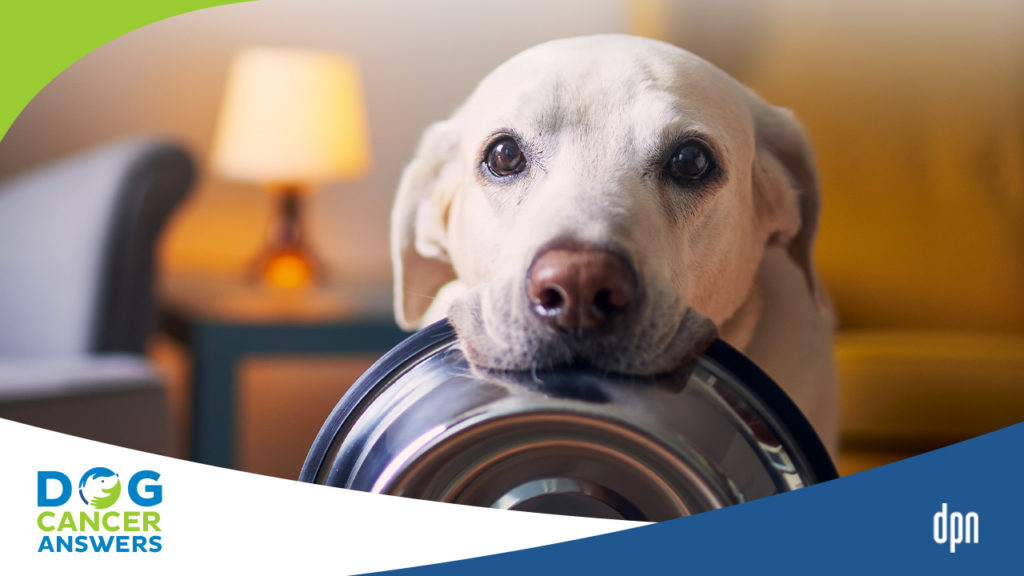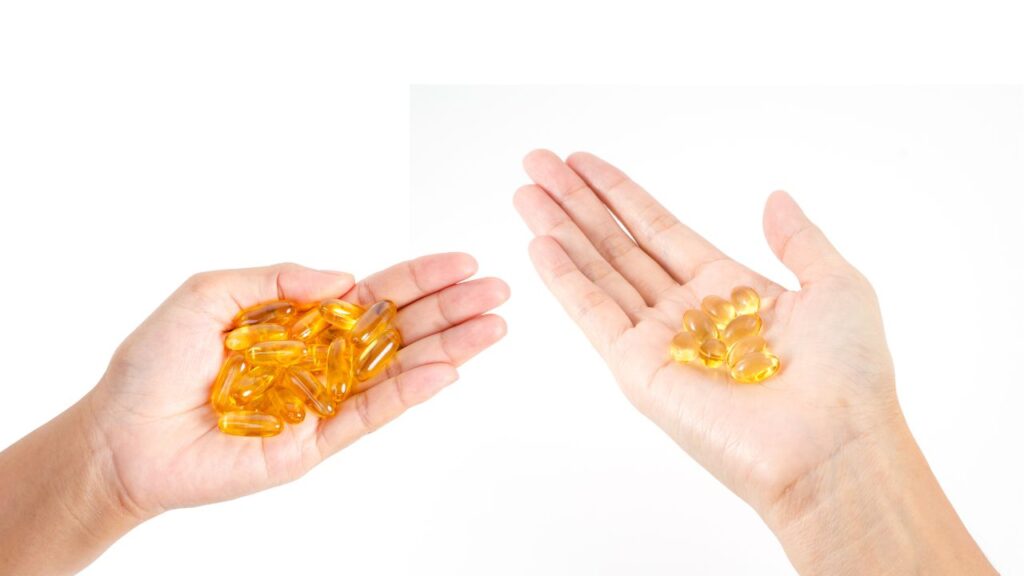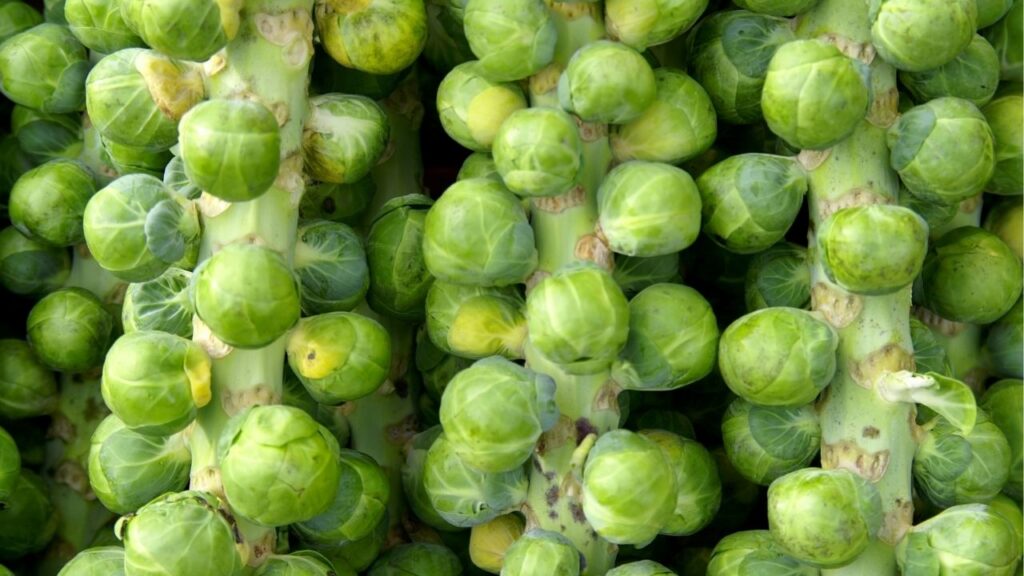Sardines are small-bodied fish with big health benefits. They’re nutrient dense, packed with compounds known to have anticancer properties, and are a tasty treat easily added to your dog’s cancer fighting diet.
Key Takeaways
- You can feed your dog a small amount of sardines every day, but feeding a couple times a week can help to avoid stomach upset.
- Dogs can have 2-14 sardines a week depending on their size.
- Fresh and canned sardines are both good for dogs. Choose canned sardines that do not have added salt or seasonings.
- You can give your dog sardines instead of fish oil, but a true fish oil supplement is more concentrated.
Sardines for Dogs with Cancer
Sardines are delicious and healthy fish, and veterinarians often recommend sardines for dogs with cancer due to their many health benefits.
Sardines: Inexpensive and Low on the Food Chain
Sardines are an elongated silver-colored fatty fish.1 Sardines can be found in shallow waters along nearly every temperate coastline with the exception of the northwest Atlantic,1 so this so called “forage fish” has become an important part of global ocean ecosystems.1
Sardines serve as food for numerous organisms, including larger fish, seabirds, squid, and a number of marine mammals.1
Sardines have also become a popular food item for humans. Sardines and sardine oil are readily available and found in grocery stores, fish markets, and online. They’re even safe to feed your dog in portion-controlled amounts.
Are Sardines Good for Dogs?
Sardines have many nutritional benefits:
- Packed with important vitamins and nutrients4 that can improve your dog’s health and support their fight against cancer by boosting the immune system.
- A great source of protein, which can help with muscle growth and maintenance.4
- Sardines contain ubiquinol, the bioactive form of coenzyme Q10.19 Coenzyme Q10 is an anti-oxidant that helps rid the cells in your dog’s body of dangerous toxins, and can specifically promote healthy heart function.3
- Sardines also contain taurine, copper, vitamin B12, vitamin D, selenium, zinc, and omega-3 fatty acids.4
- Sardines may be able to help manage the side effects of cancer and conventional cancer treatments like chemotherapy, because they’re high in fat and calorie dense.2,4 This can help dogs who are struggling to gain or maintain weight.
Let’s look at some more specifics.
Omega-3 Fatty Acids
Omega-3s are a type of polyunsaturated fatty acid that have numerous established health benefits for dogs. These include:2
- Supporting healthy skin
- Heart health
- Supporting kidney health
- Relief from osteoarthritis and joint pain
Omega-3s, particularly from fish oil, are also emerging as treatment options for irritable bowel disease (IBD), cognitive function, and cancer.2
The Anti-Cancer Properties of Sardines: Lab Testing
Research has shown that sardines and sardine oil have promising anti-cancer properties, thanks to the compounds they contain.
Polyunsaturated fatty acid extracts from two species of sardines (Sardinella longiceps and S. fimbriata) have been examined, tested on human breast cancer and prostate cancer cells, and compared at working concentrations.5 Extracts from both species showed significant cytotoxic effects (killed cancer cells) on the cell lines examined, with S. longiceps being slightly more potent than S. fimbriata.
Another study that utilized cell lines in the laboratory tested the effect of sardine oil on human lung adenocarcinoma and human colon cancer cells.6 Cell proliferation significantly decreased for both cancer cell lines, with greater amounts of sardine oil resulting in greater decreases of proliferation.
DNA in both types of cancer cells was also found to be fragmented, showing that sardine oil induced apoptosis, or programmed cell death.
Anti-Cancer Properties of Sardines: Animal Studies
Work on the topic has also been done in animal models.
Studies have shown that sardine oil can manipulate dihydrotestosterone (DHT), a hormone that plays key roles in the development and growth of male sex organs and the differentiation of the prostate gland.7 Researchers hypothesized that sardine oil may therefore be able to impact the early stages of prostate cancer in men.
To test this, rats were split into a control group and an experimental group. Rats in the experimental group were fed 800 milligrams of sardine oil per kilogram every day for two weeks, and then had hormone levels in their blood tested. Results showed that sardine oil was able to suppress the level of DHT in the blood, suggesting that sardine oil can assist in inhibiting the development of prostate cancer in its early stages.7
Self-reported survey results also echo the ability of sardines to reduce cancer risk. A total of 475 women diagnosed with breast cancer across six hospitals in Mexico City were interviewed about their diet and compared to 1,391 randomly selected individuals.8
The researchers found that sardines were one of the six primary foods that study participants ate that provided vitamin B12, and that vitamin B12 intake was associated with a lower risk of breast cancer. This was especially true in post-menopausal women.8
When to Not Use Sardines for Dogs
Dogs with fish allergies shouldn’t eat sardines.
Your veterinarian can help you determine if sardines are a good fit for your dog, so it’s a good idea to consult with them first.
If you get the go-ahead, you’ll want to introduce sardines into your dog’s diet slowly in small bite-sized portions before giving them a whole fish. Keep in mind that sardines are an oily food that can cause stomach upset and digestive issues like pancreatitis.
Avoid Oil for Overweight and Fat-Sensitive Dogs
Sardines are sometimes packed in oil and have a high fat content, so they may not be a good option for dogs that are overweight. You can avoid weight gain by opting for sardines that are packed in water instead of oil.19 Sardines packed in water often have the benefit of being cheaper as well, though product costs can vary.
Even though some oils used to pack sardines, like coconut oil, can have benefits for dogs with cancer, some varieties of otherwise healthy oils may contain omega-6 fatty acids. Too many omega-6 fatty acids in your dog’s diet can contribute to inflammation and incur other detrimental health issues.17 Sticking with water eliminates this risk as well.
Watch for Large Bones
Smaller sardines, especially those that are canned, have bones that are soft and do not pose a choking risk to your dog, but larger sardines may have bones that could hurt your pup.19 Be sure to check for these and remove them prior to feeding, or cut the sardine into small pieces.19
Be Mindful of Mercury but Don’t Panic
All fish have some amount of mercury that can potentially cause mercury poisoning. Mercury bioaccumulates as it is ingested from one animal to the next, but sardines are low on the food chain so their mercury levels do not pose a threat to your dog’s health.18,19 Regardless, you may still want to limit how much fish they eat.
Different brands of canned sardines may have differing levels of heavy metals due to the quality of sardines and the canning process.10 Looking into the brand and company can help you determine if there are any previous violations and if they are reputable.10
Potential PCB Exposure in Some Regions
PCBs (polychlorinated biphenyls) are compounds that were once heavily used in industrial and consumer products. They’re also highly carcinogenic and have been banned from the United States since the late 1970s. However, PCBs are long lasting in the environment, and some parts of the world have only recently banned them, so they continue to be identified in food, including sardines. For example, a study from Nigeria published in 2020 reports the levels of PCBs in canned sardines available in their markets were unsafe for human consumption with both noncarcinogenic and carcinogenic risks.11
How to Cook Sardines for Dogs
Sardines can be purchased fresh and stored in the freezer for up to seven days.4,2 Some sources say that you can feed fresh sardines to your dog raw or cooked, but it’s largely advised to cook any meat you give to your dog if they have cancer. Dogs with cancer have compromised immune systems, meaning that they may struggle to fight off any bacteria that may be present on or inside of raw fish.13
Cooked or tinned, you’ll want to keep tabs on how many sardines your dog is getting because they’re calorie and nutrient dense.
Dogs can have anywhere from two sardines (¼ of a can) to 14 sardines (1 ¾ can) a week depending on their size.20 Consult with your veterinarian about nutritional guidelines and amounts for your dog specifically.
Cooking Fresh Sardines for Dogs
When cooking fresh sardines, avoid cooking them in any oil.19 Similarly, broiling them also isn’t a good idea, because it can result in the creation of mutagenic heterocyclic amines (specifically 2-amino-3-methylimidazo[4,5-f] quinoline (IQ)).
Steaming is the best way to cook sardines, as it will avoid creating any carcinogenic amines16 and helps to retain nutritional value.
Canned Sardines for Dogs
Sardines can also be purchased canned or tinned. They’re usually packed in water, olive oil, or coconut oil. If possible, buy ones that are packed in water to avoid any unnecessary additional calories and too many omega-6 fatty acids.
Before cooking or giving sardines to your dog, remove any hard bones that could be harmful. Fresh sardines are typically larger and more likely to have bones that are dangerous. Canned sardines, on the other hand, are typically smaller with soft bones that are safe for your dog to ingest, and larger varieties of canned sardines are usually already deboned prior to packaging.
You can feed canned sardines to your dog as is or mix them into their dog food.
Sardine Oil
Your dog can also get the benefits found in sardines via sardine oil. Sardine oil is typically packaged in a bottle. Sardine oil can help to specifically add omega-3 fatty acids to your dog’s diet and can be mixed into their food as per the product’s directions. As with any supplement, consult with your veterinarian before giving sardine oil.
Dehydrated Sardines
Dehydrated sardines are also becoming more popular as dog owners push the pet food industry for more healthy, convenient, and natural options. For example, you can find whole dehydrated sardines treats that have absolutely no fillers or other added ingredients.
Where to Get Sardines for Dogs
You can buy sardines from the grocery store, fish market, or online.
Unlike many fish species, sardines are not farmed but rather are exclusively wild caught from the coastline of oceans throughout the world, leading to an availability of many different species sourced from various ecoregions.
Species of sardines may slightly differ in their anticancer properties. One study found that Sardinella longiceps was more effective at inducing cytotoxic effects on breast and prostate cancer cells than S. fimbriata.5 There is not much you can do about this as a consumer, but it is something to keep in mind.
If you want a specific species of sardine, you may have to search and order them online as opposed to depending on what’s available at your local grocery store.
Sardines can be presented for purchase in several ways, with the most common being canned or fresh.4
- Fresh sardines are typically not as widely available or as cost effective as their canned counterparts.
- Canned sardines also have the benefit of a long shelf life and can be kept in your cupboard long-term.14
- However, canned sardines are also more likely to have salt, artificial flavors, or spices, so be sure to check the label before buying and especially before giving them to your dog.
You can also get dehydrated sardines for your dog, or skip the fish and just get sardine oil.
- Checkley DM, Asch RG, Rykaczewski RR. Climate, anchovy, and sardine. Ann Rev Marine Sci 2017;9:469-493.
- Bauer JE. Therapeutic use of fish oils in companion animals. Journal of the American Veterinary Medical Association. 2011;239(11):1441-1451. doi:10.2460/javma.239.11.1441
- Druzhaeva N, Nemec Svete A, Tavčar-Kalcher G, et al. Effects of coenzyme Q10 supplementation on oxidative stress markers, inflammatory markers, lymphocyte subpopulations, and clinical status in dogs with myxomatous mitral valve disease. Antioxidants. 2022;11(8). doi:10.3390/antiox11081427
- Sardines, Canned in Oil. FoodData Central. https://fdc.nal.usda.gov/fdc-app.html#/food-details/1098983/nutrients. Accessed April 19, 2023.
- Chitra Som RS, Pillai P, Lekshmi S, Radharishnan CK. Anticancer effect of polyunsaturated fatty acid extracts from sardine fishes on human cancer cell lines. Int J Pharm Biol Sci 2016;6(4):66-71.
- Arulvasu C, Dinesh D, Manikandan R, et al. Evaluation of anti-proliferative effect of sardine oil emulsion on A549 and HCT 15 cancer cell lines. PharTech 2010;2(2):1171-1177.
- Oyelowo O, Okafor C, Ajibare A, et al. Fatty acids in some cooking oils as agents of hormonal manipulation in a rat model of benign prostate cancer. Niger J Physiol Sci 2019;34:69-75.
- Lajous M, Lazcano-Ponce E, Hernandez-Avila M, Willett W, Romieu I. Folate, vitamin B(6), and vitamin B(12) intake and the risk of breast cancer among Mexican women. Cancer Epidemiol Biomarkers Prev. 2006;15(3):443-448. doi:10.1158/1055-9965.EPI-05-0532.
- Inayama Y, Udaka N, Amano T, et al. Fatal aspiration of sardine fry in a patient with lung cancer. J Forensic Sci. 2000;45(2):478-482.
- Tarley CRT, Coltro WKT, Matsushita M, de Souza NE. Characteristic levels of some heavy metals from Brazilian canned sardines (Sardinella brasiliensis). J Food Composition Analysis 2001;14:611-617.
- Tesi GO, Iniaghe PO. Polychlorinated biphenyls in canned sardines in Nigeria and health risk assessment. Food Addit Contam Part B Surveill 2020;13(3):200-206. doi:10.1080/19393210.2020.1762758.
- Erkan N, Özden Ö. Quality assessment of whole and gutted sardines (Sardina pilchardus) stored in ice. Int J Food Sci Tech 2008;43:1549-1559.
- Dressler D, Ettinger S. The Dog Cancer Survival Guide. Maui Media; 2011.
- Kan F. Why do canned sardines have such a long shelf life? LinkedIn. https://www.linkedin.com/pulse/why-do-canned-sardines-have-long-shelf-life-jian-robin/. Published November 3, 2021. Accessed April 16, 2023.
- Takayama S, Nakatsuru Y, Masuda M, Ohgaki H, Sato S, Sugimura T. Demonstration of carcinogenicity in F344 rats of 2-amino-3-methylimidazo[4,5-f] quinoline from broiled sardine, fried beef and beef extract. Gann 1984;75:467-470.
- Yamaizumi Z, Shiomi T, Kasai H, et al. Detection of potent mutagens, Trp-P-1 and Trp-P-2, in broiled fish. Cancer Lett 1980;9(2):75-83.
- Heinze CR. The skinny on fat: Part 2 – essential fatty acids and inflammation. Clinical Nutrition Service at Cummings School. https://vetnutrition.tufts.edu/2018/04/essential-fatty-acids-and-inflammation/. Published March 16, 2022. Accessed February 8, 2023.
- Cooperman T. Omega-3s, vitamin D & Mercury in sardines. ConsumerLab.com. https://www.consumerlab.com/answers/are-sardines-healthy-and-safe-to-eat/sardines/. Published August 2, 2020. Accessed April 16, 2023.
- Dogster. Sardines for dogs? can dogs eat sardines? Dogster. https://www.dogster.com/dog-food/sardines-for-dogs. Published February 28, 2020. Accessed April 16, 2023.
- Janisse K. Can Dogs Eat Sardines? 5 Benefits of Feeding Sardines for Dogs. April 28, 2021. https://blog.homesalive.ca/dog-blog/can-dogs-eat-sardines. Accessed on January 16, 2023.
Topics
Did You Find This Helpful? Share It with Your Pack!
Use the buttons to share what you learned on social media, download a PDF, print this out, or email it to your veterinarian.






